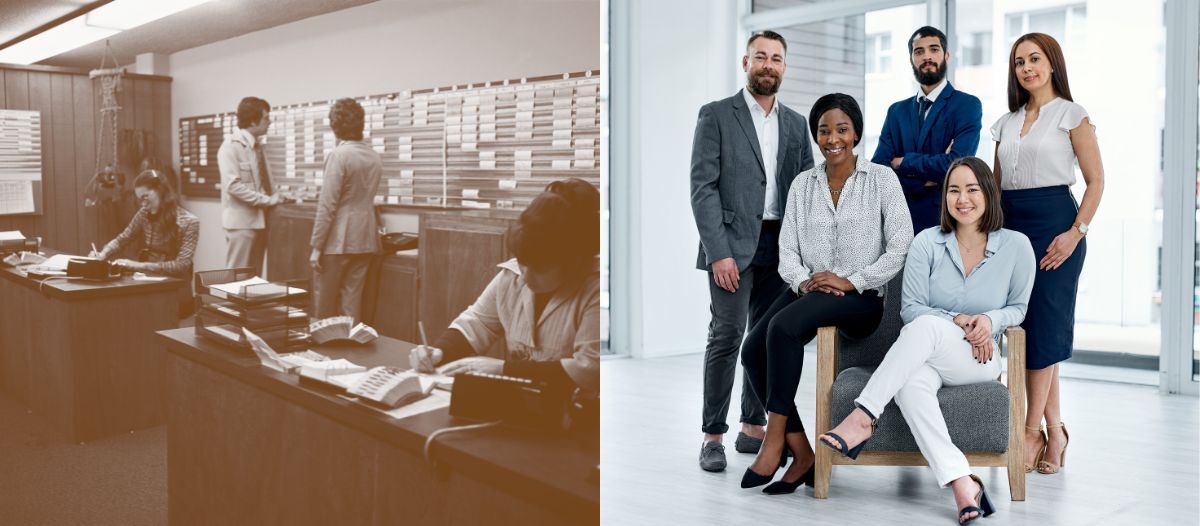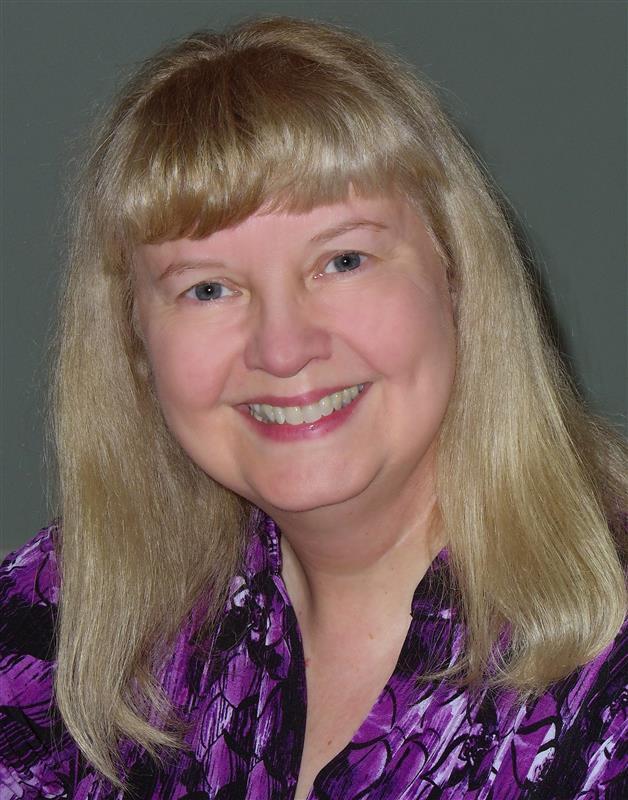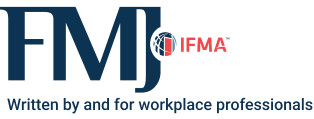Future-proofing FM
Ongoing challenges present ongoing opportunities

Future-proofing an industry falls on every professional within their respective fields, and facility management is no different. Although today’s FMs face many of the same challenges as FMs over the past four to five decades, there are stark differences. Fluctuating government mandates from all levels are influencing strategic and capital planning. A hybrid work environment has transformed how organizations view space and personnel needs. Today’s leaders, employees, vendors and visitors are expecting more from their facilities – work is no longer a place to go; it has become a destination of choice. Evolving technologies add a layer of much-needed automation, but also a sense of uncertainty as organizations navigate how they will use AI and sensor tech to shape their forward vision.
Today’s FMs must have a firm grasp on current challenges and opportunities, while understanding that they do not exist within their own vacuum. Early FM professionals understood this concept within their organizational structure, tools and technology. All the while, they sought and harnessed innovation and strategic vision to ensure that built environment professionals are the reason organizations succeed.
The birth of an industry
In short, early facility managers – even before they had that title – were tasked with future-proofing a virtually nonexistent industry.
In 1980, a future-forward group of businesspeople met in Houston, Texas, USA, to invent a profession. At that time, they were struggling to keep their jobs amid the latest technological revolution. Everything about the office was changing daily. Does that sound familiar?
In 1978, IFMA co-founders George Graves, IFMA Fellow, of Texas Eastern Transmission Corp.; Charles Hitch of Manufacturer’s Bank in Detroit; and David Armstrong, IFMA Fellow, of Michigan State University voiced a need for an organization comprised of facility professionals from the private industry. In May 1980, Graves hosted the Houston meeting, locking the doors of the room until the founders developed a basic structure for what became the National Facility Management Association (NFMA). In October of that year, the first NFMA conference was held with 47 participants at the Facility Management Institute (FMI) in Ann Arbor, Michigan, USA. A constitution and bylaws were ratified, and the association was born.
The FMI developed the term facility management in the late 1970s and sent David Armstrong around the country to explain the concept. Vendors were having a hard time explaining their new product concepts based on the introduction of computers into the workplace. The vendors quickly realized an informed customer was a better customer. In Armstrong’s wake, chapters were started around the U.S. With the addition of Canadian members from Toronto, NFMA changed its name to the International Facility Management Association (IFMA) in 1982.
The term facility management was difficult to explain. Yet as the concept took hold, it began to make sense. Suddenly organizations realized that this multifaceted job encompassing all areas of the built environment had a name. More importantly, a real job title. These people were facility managers (FM) and needed to learn everything they could.
The next problem was resources.
Imagine doing a job with no clear understanding of it or metrics to measure success. One of IFMA’s first tasks was to better define the FM profession and develop education. In 1984 the U.S. Library of Congress accepted its first definition of facility management. That year, IFMA developed the profession’s first eight core competencies, leading to the development of FM-specific education. Since then, IFMA has developed a formal certification process, industry-respected credentials, training and conferences, while colleges and universities around the world offer FM degree programs. The early FM leaders developed a plan and followed through it for themselves and the profession.
Finding our stride
Change is constant but some things remain the same. Every FM must have certain core skills to succeed now and in the future. These skills do not just come magically. They require a personal development plan and years to accomplish. It must encompass certain key skills and traits. They make the plan and follow through. This is how professionals future-proof their industry and careers.
Personal integrity is an essential business skill. Colleagues, employees, employers and others with whom you deal daily need to know they can trust you. Mistakes must be admitted, responsibility taken and appropriate apologies given. In 1983 IFMA adopted a Code of Ethics.
FMs must be educated. There are many options through degree programs, IFMA credentialing and courses, and other valuable resources to gain knowledge on trends, products, best practices and so much more. FMs must know their job better than anyone else and should never guess the answer to a question. If the correct answer is not known, find it. One of the fastest ways for someone to lose credibility is to talk or act when they do not know what they are doing.
FMs need to be leaders. These professionals are often the glue that holds organizations together, coordinating all its departments and people to ensure operations function efficiently and effectively. FMs must lead teams productively without losing the valuable input they provide. When employers do not offer leadership training, find it for free by volunteering. Within IFMA, experienced leaders are willing and able to teach in a forgiving yet challenging environment.
FMs must be effective communicators. Whether working remotely, in person or communicating electronically, FMs must be clearly understood when speaking or writing. Comments should be concise, to the point and in keeping with the subject at hand. When on site, appearance needs to be neat and clean. Bad first impressions are hard to overcome.
Find a mentor. There are experienced FMs who demonstrate the skills and knowledge you need. IFMA’s Networking Groups have mentorship opportunities and provide an excellent platform to ask questions of peers and veteran professionals. Every FM at some point was new to the profession and more than likely, someone helped them in their career. Many organizations have in-house mentorship programs that can pair their experienced professionals with future leaders. Future leaders know they need help and are not too proud to ask.
FMs must know and understand the financial position of their company. There are two departments that usually know where an organization is heading: accounting and HR. Establish contacts within each group and demonstrate reliability so they will share information. FMs should ensure that they know all the real estate/facilities within their organization’s portfolio, have operating budgets for each building, and understand how to manage capital budgets and expenses.
Furthermore, FMs must read and understand the annual report or any financials published by their employer. This includes the annual capital and operating budgets and forecasts of staffing levels. Having access to and understanding this information can help strategically plan future projects, such as being asked to prepare a detailed budget for a 20-person expansion.
Being the best of the best
FMs must pursue quality in everything they do and demand it from those they work with. This builds a reputation around jobs well done. This sounds basic, but it is also often hard to do without all the needed resources. If that is the case, it is time to be creative and make the best with the tools and data at hand.
One of the biggest obstacles FMs face is a fear of failure. People often sabotage themselves by not having the courage to take the next step. Sometimes the fear of failure becomes the reason for not applying for that next job or taking the CFM exam. People will make mistakes along the way. However, those failures can turn into successes when they are used as teaching tools.
Future-proofing the industry begins with FMs future-proofing themselves. They must think about where they are in their careers and question what is missing from their resume. Sometimes hard questions like, “Am I just marking time in my current job because I am afraid to take the next step?” must be asked. There are job opportunities everywhere (but to advance, FMs must be prepared. IFMA resources can help any FM, regardless of where they are in their careers, to develop their personalized development plan.
When organizations needed them most, future-proofed FMs have been at the ready.
FMs helped their organizations strategize and implement technological advancements. Through the COVID-19 era, FMs led the way for safe and responsible reentry planning. While buzzwords like “a new normal” and “these unprecedented times” were dominating headlines, well-trained FMs were putting into action all their best practices and know-how.
The future is here every day. Facility managers are the ones who strategize planning and put those plans into fruition. By staying prepared to face today’s challenges and tomorrow’s opportunities, FMs are future-proofing themselves, their profession and their organizations.
Project You - an interactive workshop lead by IFMA Fellows
IFMA’s World Workplace 2025 features a first-of-its-kind session at its flagship conference and expo.
Session description: You are not successful by accident; it takes planning and focus. Four IFMA Fellows will share how they planned their success and worked to achieve personal career goals. After the panel discussion, attendees will divide into small work groups with an experienced IFMA leader at each table to discuss the barriers and solutions of their own professional journey. The group will reconvene with a Q&A session to share their results and ask questions of the panel. Part of your session experience will include guidance as to how you can create a project plan that focuses on you and how you can more effectively invest the time, financial resources and energy to be successful in FM and enjoy the journey!

Read more on Leadership & Strategy and World Workplace 2025 or related topics IFMA and Career Advancement
Explore All FMJ Topics








